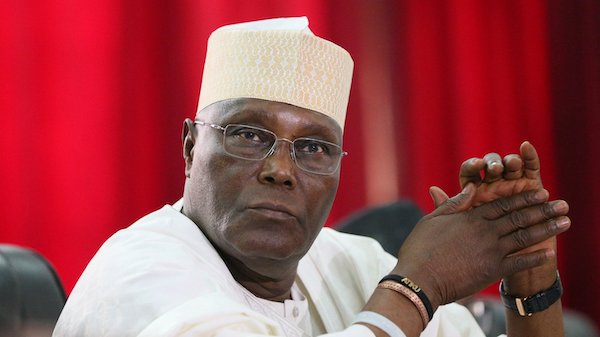The Adamawa state government on Tuesday informed a federal high court, Abuja that Atiku Abubakar, former vice-president is eligible to run for the office of the president.
This state attorney-general of Adamawa state, Afraimu Jingi moved a motion on a notice seeking to be joined in a suit filed by a group against Abubakar and three others.
The group, Incorporated Trustees of Egalitarian Mission for Africa (EMA), had challenged Abubakar’s eligibility to contest for president on the grounds that he is not a Nigerian citizen by birth.
The EMA joined the Peoples Democratic Party (PDP), the Independent National Electoral Commission (INEC), and Abubakar Malami, the attorney-general of the federation (AGF), as co-defendants in the suit.
Jingi, through L.D. Nzadon, his lawyer, is seeking an order of the court to be joined in the matter.
According to NAN, the lawyer described the matter as “a public interest suit to ensure that the Constitution of the Federal Republic of Nigeria 1999 (as amended) is complied with in the election of the president of Nigeria”.
He said the Adamawa AG is a chief law officer of the state and that the matter cannot be effectively and conclusively determined unless he is joined as a party.
Nzadon said Atiku, is a citizen of Nigeria from Adamawa and that the suit threatens the right of not just the former vice-president to contest the office of president, “but that of the citizens of Nigeria of Adamawa State origin covering 12 out of the 21 Local Government Areas in the state”.
“To disenfranchise the citizens of the 12 local government areas of Adamawa state in relation to the office of the Federal Republic of Nigeria, is to discriminate against them contrary to Section 42(1)(a), (2) of the 1999 Constitution of the Federal Republic of Nigeria (as amended),” Nzadon told the court.
“The government and people of Adamawa state have a greater interest in this suit than the 4th respondent (AGF).”
Since the counsel to other parties did not oppose the motion, Inyang Ekwo, the presiding judge, granted the prayer.
The judge gave the applicant seven days to file and serve all the processes and adjourned the matter until September 27 for a hearing of the substantive suit.
